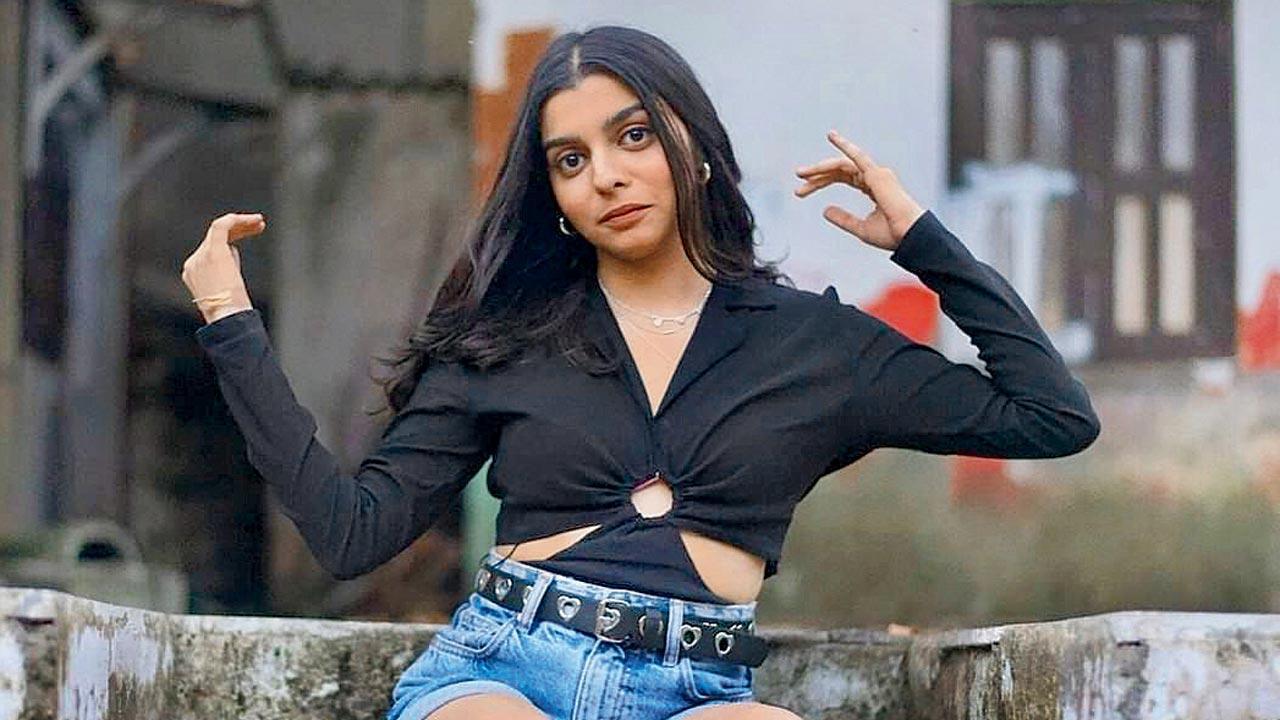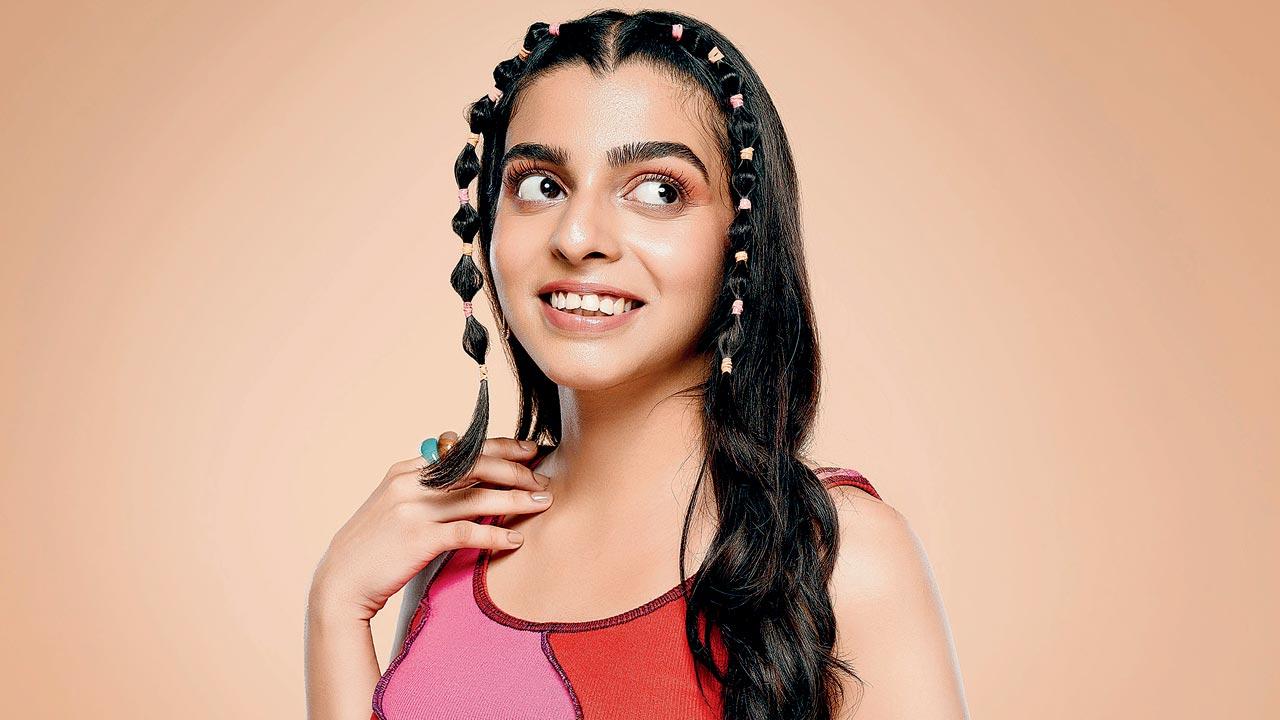Kareema Barry | Influencer and Actor | For Kareema Barry, the city of dreams needs adjusting to before one can truly put down roots. The content creator of Masaba Masaba fame talks about how her fling with Mumbai is slowly turning into love

Kareema Barry moved to Mumbai to pursue her Masters in Literature and ended up staying for the people and the “feeling” the city gave her
Bombay. The old name for a city that’s always up to something new; always changing, always moving onward. But for those who arrive on its shores, looking to settle down, the transient nature of the city acts like whiplash.
ADVERTISEMENT
It was the same for influencer Kareema Barry, who moved to Mumbai in February 2022. Barry wasn’t unfamiliar with staying alone as a twenty-something; she’d shuttled between Mumbai, Kolkata, and Delhi before, as a student. “In Mumbai, living by yourself is a different experience. It’s so…big, for starters,” she laughs. “The vibe is chaotic!” Barry, whose content revolves around comedy and relatable situations, moved to Mumbai, ostensibly, to pursue her Masters in Literature—but also, she says, as an excuse to get her parents to give her permission to live in another city.
The year before her move, she’d been flying so often in and out of the city for shoots to the point that she began to hate the sight of a hotel room. By that time, she’d already been established as a successful influencer. Barry says that the change the move had brought to her didn’t impact her content much, but it did help in getting access to collaborations. “Mumbai is slowly becoming LA,” says the 24-year-old. Many content creators and influencers are moving here. It’s a lot easier to collaborate with people if you’re in Mumbai.”
 Pic/Aniruddh Kothari
Pic/Aniruddh Kothari
Barry grew up in Kolkata, a city known for its old-world charm. In some ways, she feels, Mumbai matches Kolkata’s nostalgia. She’ll be walking down a lane in Colaba, and the colonial structures and buildings project a sense of déjà vu. “It’s very similar to Cal in the culture,” she says. “But not in pace. Kolkata is like, ‘Let’s go nap for a bit!’ and Mumbai is like, (with a deadpan voice) ‘I don’t know what sleep is’.”
“Bombay people” have normalized chaos, clutter, and confusion, she thinks, which feels strange to outsiders. For instance, the traffic and construction noise at all hours of the day. “That’s not how people in other cities live!” Barry exclaims. “I don’t know how you guys do it.” She adds, with a touch of humour: “In Kolkata everything is fifteen minutes away, and even that feels far. In Mumbai, if you live fifteen minutes away, you’re neighbours.”
Apart from the noise, another common and oft-repeated cliché is how Mumbai travels at the speed of light.
But what surprised Barry was not so much the pace at which life runs by in the city, but how people are willing to stop and adjust to your speed, if even for a moment. “This was The City, India’s biggest, a huge city, but people heard and responded to what was happening in your life,” is what author Jerry Pinto wrote in his book Em and the Big Hoom.
Barry’s comment is, “In Mumbai, you have to take out the time to be nice to people. Everybody is in such a rush, but they’re so helpful at the same time. The way that people describe Mumbai, it sounds like a very cutthroat, competitive place, where everybody’s out to kill each other. But it’s not like that at all.” The first time she travelled in the local train, she ended up getting lost at Dadar platform, landing up in the inter-city route. A stranger helped her to get to the right platform, even staying to ensure that she bought the correct ticket and sat in the right train.
For Barry, however, adjusting to the lack of North Indian food was a major hiccup. “In Delhi and in Kolkata, there’s this Mughlai food scene. But here, I was quite surprised that you don’t find a lot of North Indian food here. I missed my aloo-wala biryani and fish chops—that was hard to adjust to.”
A “literature gal” as she calls herself, Barry remembers the first time she went for a walk down the sea-facing road that fronts the Taj Mahal Palace Hotel, and the trip to Marine drive and Kitab Khana, the bookstore that has a close association with Fort and its surroundings. Her favourite haunts are the lanes near Leopold café; it reminds her of the time she lived in Prabhadevi, and Bandra’s Chapel Road. But while she loves the city, still viewing it from the fresh, enthusiastic perspective of a tourist, she says she’s still “letting her roots sink in”.
“It’s a harsh city to make home. It takes some running away, some coming back again, some fighting with the city…it’s like a relationship you’re building with it. Currently, Mumbai and I are in a situationship!” she laughs. “However, when I’m not here, I miss the people, and the way the sun sets in the evenings and life gets a little bit quieter. It doesn’t feel like Mumbai anywhere else in the world. I miss the feeling of Mumbai when I’m not in Mumbai.
“We would like to take it seriously, Mumbai and I,” Barry muses. “I’m considering going from a situationship to a marriage—or maybe a live-in relationship.”
Mumbai meri jaan?
Love about Mumbai Chaos, and the energy of that chaos
Hate about Mumbai How far everything is
Expectations from Mumbai That it would be a very cutthroat place
Did Mumbai live up to it? No, the kindness of the people surprised me
Will it remain forever home? Too early to tell…but it’s on the way to becoming home…
 Subscribe today by clicking the link and stay updated with the latest news!" Click here!
Subscribe today by clicking the link and stay updated with the latest news!" Click here!







